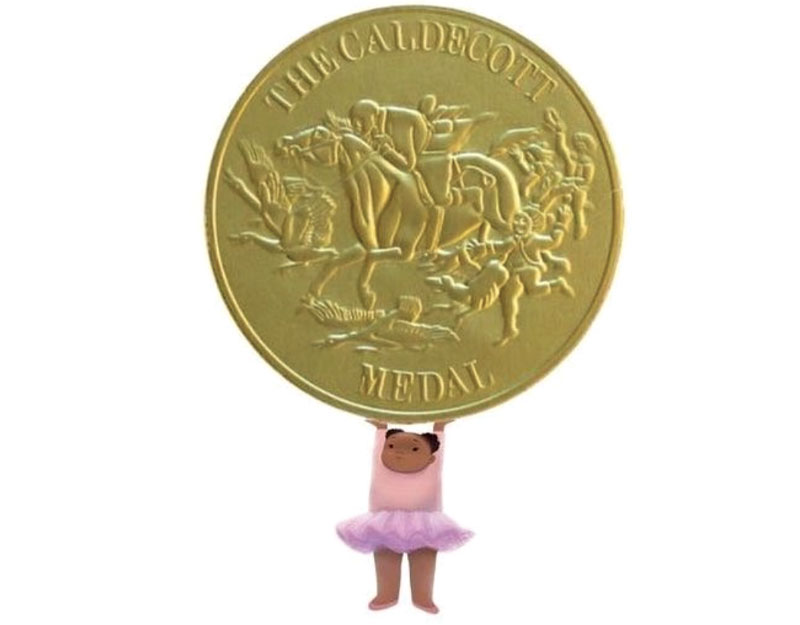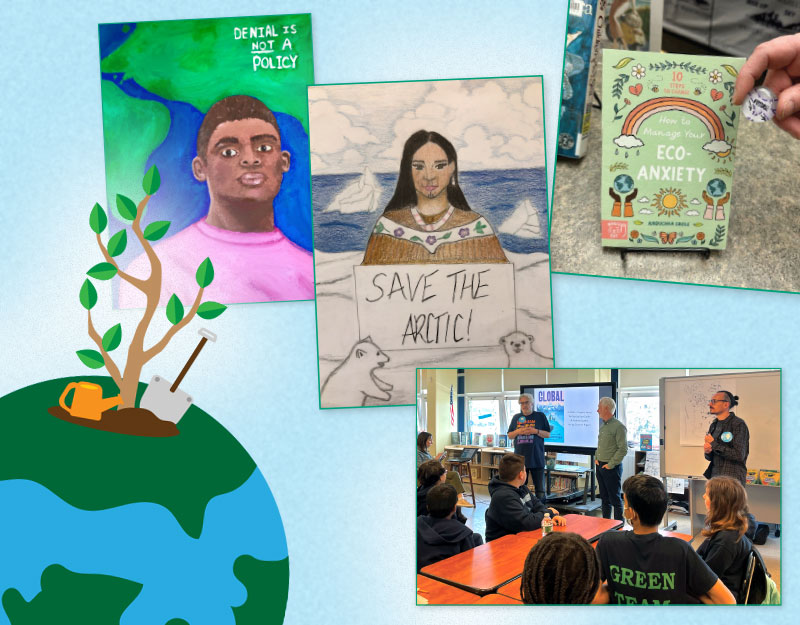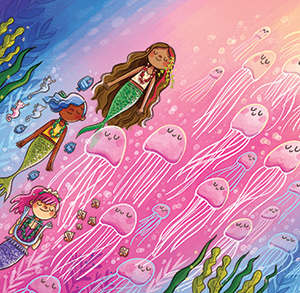Guest Post: What We’re Missing #4 by David Jacobson
It’s back again! Once more guest poster David Jacobson has returned to give us the 411 on international works of children’s literature that you undoubtedly have NOT encountered before. This time we’re shaking things up a bit by also including works from the past. These include titles about entrenched economic inequalities from a Yiddish book starring a “Leftist Lassie”, a math loving orphan in Russia, a YA novel filled with timely themes from Finland,
Labzik: Stories of a Clever Pup by Khaver Paver, aka Gershon Einbinder (1935). USA (Yiddish): International Workers’ Order. Ages 8-12. 79 pages.

I only wish that I could translate faster. I write during a desperate week in which understandable rage against brutal and entrenched policing practices has sparked conflagration across and beyond the US, and I know many of my friends are wondering how to talk with their children about racism, oppression, and resistance. How to explain to elementary schoolers what is happening in virtually every major American city, and how to use the anguish to cultivate the qualities that will enable our children to dismantle structural racism and build a more compassionate world?
ADVERTISEMENT
ADVERTISEMENT
I am currently translating Labzik: Stories of a Clever Pup, a collection of linked stories by Khaver Paver (pen name of Gershon Einbinder, 1901-1964) published in 1935 by the communist-aligned International Workers’ Order and distributed in its secular Yiddish-language after-schools. The Labzik stories are like a sit-com avant la lettre: each chapter presents a self-contained episode with rising action, a climax, and a resolution; the tone is light; the family whose life animates the tales is sketched in economical stereotypes, with its foibles more than counteracted by its large-hearted generosity and sense of justice. The hero of nearly every story is Labzik, or “Leftist Lassie” as I like to think of him, who saves the day again and again by drawing only on a repertoire of actions and expressions that would be the realistic province of a rather precocious canine.
The fight against economic inequality is present in virtually every chapter, police brutality is a recurring plot point, and so are the mechanics of peaceful protest—all framed suitably for elementary-age readers. Labzik learns, in a painful episode, that racism is wrong, and the exemplary paterfamilias, Berl the (sewing machine) Operator, forms part of a geographically diverse, multiracial action in the nation’s capital modeled on the 1932 March on Washington. The endings of the various episodes are redemptive and hopeful, but they don’t sugarcoat the truth that much work remains to be done. In that culminating final chapter, Labzik helps the marchers peacefully evade police attack and make their way toward the White House. However, the President won’t listen. The solution the book proposes is for every marching worker to go home to his community (yes, it was 1935 and all the marchers were presumptively male) and tell everyone about the experience so that all Americans of good conscience would be motivated to vote the callous administration out of office.
Labzik is part of a rich, multifarious yet mostly neglected corpus of Yiddish children’s literature that I am trying to make accessible to English-language readers. Two Labzik chapters appear alongside almost 50 other stories and poems in my collection, Honey on the Page: A Treasury of Yiddish Children’s Literature, forthcoming from NYU Press in October. I hope to finish translating the rest of Labzik this summer; the work feels more urgent than ever.
Reviewer: Miriam Udel is Associate Professor of Yiddish Language, Literature and Culture at Emory University. She currently translates and researches Yiddish children’s literature and culture. Honey on the Page is now available for pre-order.
Pi Day by Nina Dashevskaya (2018). Russia: Samokat Publishing House. Ages: middle grade. 200 pages.

Contemporary Russian literature for children and teens presents a variety of different voices. With a difficult transition from the Soviet literary canon and its primacy of ideological restrictions, it took at least a decade for new and young authors to appear and to develop new themes and approaches in kids’ literature. Starting in the mid-2000s, more and more writers have tried their hand at prose and poetry for children, and a few young novelists emerged as particularly distinct voices in the field.
One of the most interesting authors of this generation is Muscovite Nina Dashevskaya. Quiet and mild-mannered, she is first of all a professional musician who plays violin in the Children’s Musical Theater. It is not surprising that music is an essential part of her writing. Her main characters are often pre-teen boys who are, in many ways, different from their peers. Among her most popular books are Near the Music (2015), Violin of the Unknown Master (2015), and I’m Not Slow (2016).
Pi Day is about a boy of ten who is unlike anyone else in his school. Leva does not have any parents. An old professor found him as a little boy in an airport, all alone; he and his wife became his grandparents. The boy’s real parents were never found, although the grandmother sometimes jokes that Leva was left behind by the aliens.
Leva is captivated by math, and he is really good at it. He experiments with music and sees different sounds as different colors (fried eggs are g-sharp minor because of green dill). Intellectually, he is extremely well developed, but his emotions are not mature, and buying a new pair of pants or going for a haircut is a true challenge for him.
“I am not strange,” he says, “I am normal. Everyone else is strange. Imagine, you are in a society where everyone is like me. Would you like this? Everybody will say that you are strange. How will you explain to them that you are just fine! You believe that you are normal only because you are the majority!”
To his classmates, Leva is an oddball; nobody wants to be his friend. One of the boys, Kirill, is Leva’s archenemy. Kirill both despises Leva and envies him. He feels that Leva is much more talented than he is even though Kirill plays cello and dreams to be a composer. Another classmate, Sonya, Kirill’s childhood best friend, starts communicating with Leva via emails where they discuss math, music, and poetry, but she is ashamed to be seen with him at school.
A new math teacher changes the social equation in the class. Slowly, Kirill finds out what an interesting person Leva is. The first half of the book is narrated by Leva; Kirill recounts the second part, where, after a few unfortunate events, both boys learn how to respect and even like and support each other.
Reviewer: Olga Bukhina is a translator, a writer, a children’s books specialist, and an independent scholar based in New York City. She has translated over forty books from English into Russian: young readers’ novels and picture books as well as historical fiction, non-fiction, and scholarly books. Authors include Louise Fitzhugh, Carl Sandburg, Jacqueline Kelly, C.S. Lewis, Enid Blyton and Meg Rosoff. Bukhina has co-authored three children’s books for the Children’s Project of Lyudmila Ulitskaya. Her book The Ugly Duckling, Harry Potter, and Others: A Guide to Children’s Books About Orphans was published in Moscow.
Chick (“Pöntto”) by Kirsti Kuronen (2017). Finland: Karisto. Ages 14+. 86 pages.

The world of Finnish children’s literature is full of talented writers and illustrators, but one of the most unique writers currently on the scene is Kirsti Kuronen. She primarily writes children’s and YA fiction, and in recent years she has distinguished herself as the only writer in Finland to write novels in verse. I had the opportunity to translate a sample from her second verse novel, Chick (Pönttö), a book that introduces us to Luna, a recent high school graduate. Offering a timely depiction of sexual assault, Kuronen shows how Luna’s efforts to deal with it are tangled together with how girls are conditioned to be and act. Isn’t she just a dumb chick who should suffer for what she perceives as her mistake? Shouldn’t she keep her mouth shut to keep people from talking about her and calling her a slut?
Written with the intimacy of a diary, readers bear witness to Luna’s anxieties and vulnerabilities but also learn of her love of dancing, photography, and birds. Indeed, the double meaning of “Chick” plays out in the novel as Luna struggles against the word’s derogatory meaning and watches a chickadee hatching her chicks, symbolizing new beginnings. As the story progresses, we catch glimpses of Luna’s spirit beginning to break free and the steps she takes toward a positive expression and acknowledgement of her own sexuality. When she later reconnects with a childhood friend named Sami, she writes:
Today I’m going swimming with Sami
I’ll close my eyes and take off my clothes, I’ll let Sami look
and tomorrow I’ll open my eyes, I’ll be brave enough to see
his gaze
ADVERTISEMENT
ADVERTISEMENT
and just think, by August I’ll look at Sami
I’ll look and look and look
Ultimately this work is a testament to the resiliency of the human spirit while providing readers with a portrait of a young woman growing up in Finland.
Kuronen has been working as a full-time writer since 2009. In 2011, Kirsti Kuronen won the prestigious Topelius Prize, awarded annually to the best work of YA literature in Finland, for the novel “Pirouette Friends” (“Piruettiystävyys”). Panamericana Editorial will publish a Spanish-language edition in the U.S. and Latin America this year (“Ta como eres tapa”, translated by Tanya Tynjälä), but none of her work has been translated in English. Her first verse novel, Bad Patch (Paha Puuska, Karisto Publishing 2015), was a 2016 IBBY Honour List Book.
Reviewer: Mia Spangenberg is an emerging translator from Finnish who loves children’s literature. Her first published translation is a nonfiction title, Secrets and Siblings: The Vanished Lives of China’s One Child Policy (Zed Books, 2019).
Editor: David Jacobson a member of the board of the Global Literature in Libraries Initiative and the chair of the 2021 committee for the GLLI Translated YA Book Prize. He is also author of Are You an Echo? The Lost Poetry of Misuzu Kaneko.
Filed under: Guest Posts
About Betsy Bird
Betsy Bird is currently the Collection Development Manager of the Evanston Public Library system and a former Materials Specialist for New York Public Library. She has served on Newbery, written for Horn Book, and has done other lovely little things that she'd love to tell you about but that she's sure you'd find more interesting to hear of in person. Her opinions are her own and do not reflect those of EPL, SLJ, or any of the other acronyms you might be able to name. Follow her on Twitter: @fuseeight.
ADVERTISEMENT
ADVERTISEMENT
SLJ Blog Network
Name That LEGO Book Cover! (#53)
Exclusive: Vol. 2 of The Weirn Books Is Coming in October | News
Fighting Public School Book Bans with the Civil Rights Act
Take Five: Middle Grade Anthologies and Short Story Collections
ADVERTISEMENT








Betsy, Thanks so much for posting these three reviews. I look forward eagerly to reading Professor Udel’s new collection, which will bring the treasures of Yiddish literature for young people to a new audience. Readers might also like to search the resources at the Yiddish Book Center for more information about this sadly neglected topic.
https://www.yiddishbookcenter.org/collections/yiddish-book-centers-noah-cotsen-library-yiddish-childrens-literature
I visited the Yiddish Book Center with my family in February, not expecting it to be too interesting. I was very wrong! I was also privileged to run into someone I know who works there who took us behind the scenes and let my kids open one of the boxes of donations of books that they get every day.
Will Pi Day be translated into English and do you know when? Sorry if I missed this information in the post.
Hi Rachel, thanks for your question. I’m sorry I didn’t reply sooner. Olga Bukhina, who wrote the review, contacted the publisher in Russia. It sounds like there has been some interest on the part of a translator and separately on the part of a publisher, but no deal has yet been set.